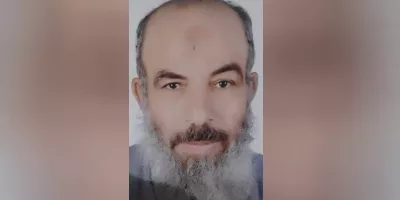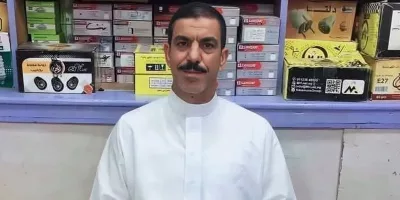The international silence on human rights violations in Egypt, especially the right to life, made the authorities there continue to carry out mass death sentences issued by exceptional trials that lacked the minimum standards of fair trials, amid joint cooperation initiatives with the European Union, and military aid from the United States, the Committee for Justice said today.
On the morning of Tuesday, March 8, 2022, Egyptian authorities implemented the death penalty against 4 defendants in Case No. 9115 of 2016 South Giza, known in the media as the “Helwan Microbus Cell” case. The victims are: Abdullah Muhammad Shukri, Mahmoud Mohamed Abdel Tawab, Mahmoud Abdel Hamid Al-Junaidi, and Ahmed Salama Ali.
Death sentences were also carried out for 3 defendants in Case No. 3455 of 2014 in South Giza, known as the “Ajnad Misr 1” case, on the morning of March 10, 2022, more than two years after the court of cassation upheld their death sentences on May 7, 2019. The sentences were issued against 13 defendants in the case by the Criminal Court in December 2017. Those who were executed on Wednesday are: Bilal Ibrahim Sobhi Farhat, Muhammad Hassan Ezz El-Din Mohamed Hassan and Taj El-Din Mu’nis Mohamed Mohamed.
Ahmed Mefreh, the executive director of CFJ, commented on the executions saying: “The Egyptian regime is taking advantage of all available opportunities to work to implement the arbitrary death sentences it issued in political cases, in light of the preoccupation of the international human rights and political community with the situation related to the Russia-Ukraine war. The regime deliberately concealed execution information from the families of victims. No official information was issued regarding this or any other wave of executions, in violation of the most basic accepted rules.”
CFJ stated that the Helwan Microbus case was marred by many violations against the defendants during their investigation or trial. Despite that, the Egyptian Court of Cassation upheld the death sentences and life imprisonment issued in it, as it rejected the appeals submitted by 18 defendants, among them are the 4 defendants who have had their death sentences carried out. A fifth defendant has also been sentenced to death but he has already been executed in connection with another trial. The court also upheld prison sentences against 14 other defendants.
The Fair Trials team, which is one of the organization’s main projects, monitored a range of violations in the case, including that all the accused were arrested by the National Security Agency at different dates and locations than those mentioned in the arrest records issued by the investigation officers, and before the issuance of the prosecution’s permission, and some of them submitted telegraphs indicating the date of their previous arrest that preceded the issuance of the prosecution’s warrant.
The defendants were also subjected to enforced disappearance from the date of their arrest until the date they were brought before the Public Prosecution, and they all mentioned that they were subjected to severe torture inside the headquarters of the National Security Agency, to extract the confessions based on which they were referred to trial. But neither the prosecution nor the court paid any attention to the violations, and the torture allegations have not been investigated.
Also, in the first session of the investigations, the prosecution investigated the accused without the presence of any lawyer to defend them, which is a violation of the text of Article 54 of the Constitution of 2014, which explicitly states: “The investigation with the accused shall not begin without the presence of his lawyer.”
The CFJ team explained that the prosecution and the court neglected the investigation and scrutiny of the accusations, facts and defenses submitted by the accused, especially in the incidents of torture, the dates and places of arrest, and that some of the alleged crimes were carried out in public places where there are surveillance cameras, and they were not examined or used to identify the perpetrators or to clarify the presence of the accused or not during the events.
As for the “Ajnad Misr” case, 10 of them had already been executed in October 2020, and the defendants were also subjected to extensive violations after their arrest, including enforced disappearance, physical and moral coercion to make confessions, as well as investigations with defendants in the absence of lawyers.
Mefreh added: “With the implementation of this latest wave of executions, the number of people executed by hanging in Egypt exceeds 100 detainees. They were sentenced to death by military courts and terrorism courts that lack the lowest standards of fair trials.”
CFJ monitored the implementation of 105 death sentences, in 23 cases, in the years from 2015 to 2022, which were as follows:
In 2015, 7 death sentences were carried out.
In 2016, only one death sentence was carried out.
In 2017, 15 executions were carried out.
In 2018, 14 executions were carried out.
In 2019, 18 executions were carried out.
In 2020, 25 executions were carried out.
In 2021, 18 executions were carried out.
In 2022, 7 death sentences have been carried out so far, and 87 defendants remain on death row after the sentences against them became enforceable.
CFJ condemns the Egyptian authorities’ implementation of these death sentences, which stem from trials in which there was no justice. Also, the preemption of judicial rulings and the inclusion of the accused in the list of terrorism based on mere accusations in the Helwan Microbus case is yet another evidence that the Egyptian judicial system lacks the minimum elements of justice and transparency.
The organization also called on the international community and the UN mechanisms to put pressure on the Egyptian authorities to stop the implementation of those mass death sentences issued by exceptional courts that do not have the elements of internationally recognized justice, stressing the need for the accused to stand before their natural judge, with the need to retrial and provide remedies for the families of those executed.






